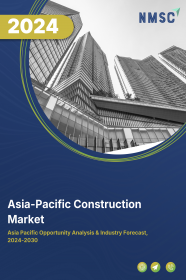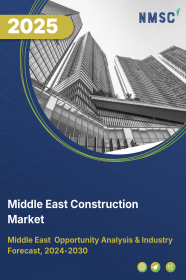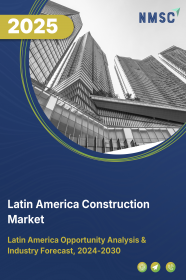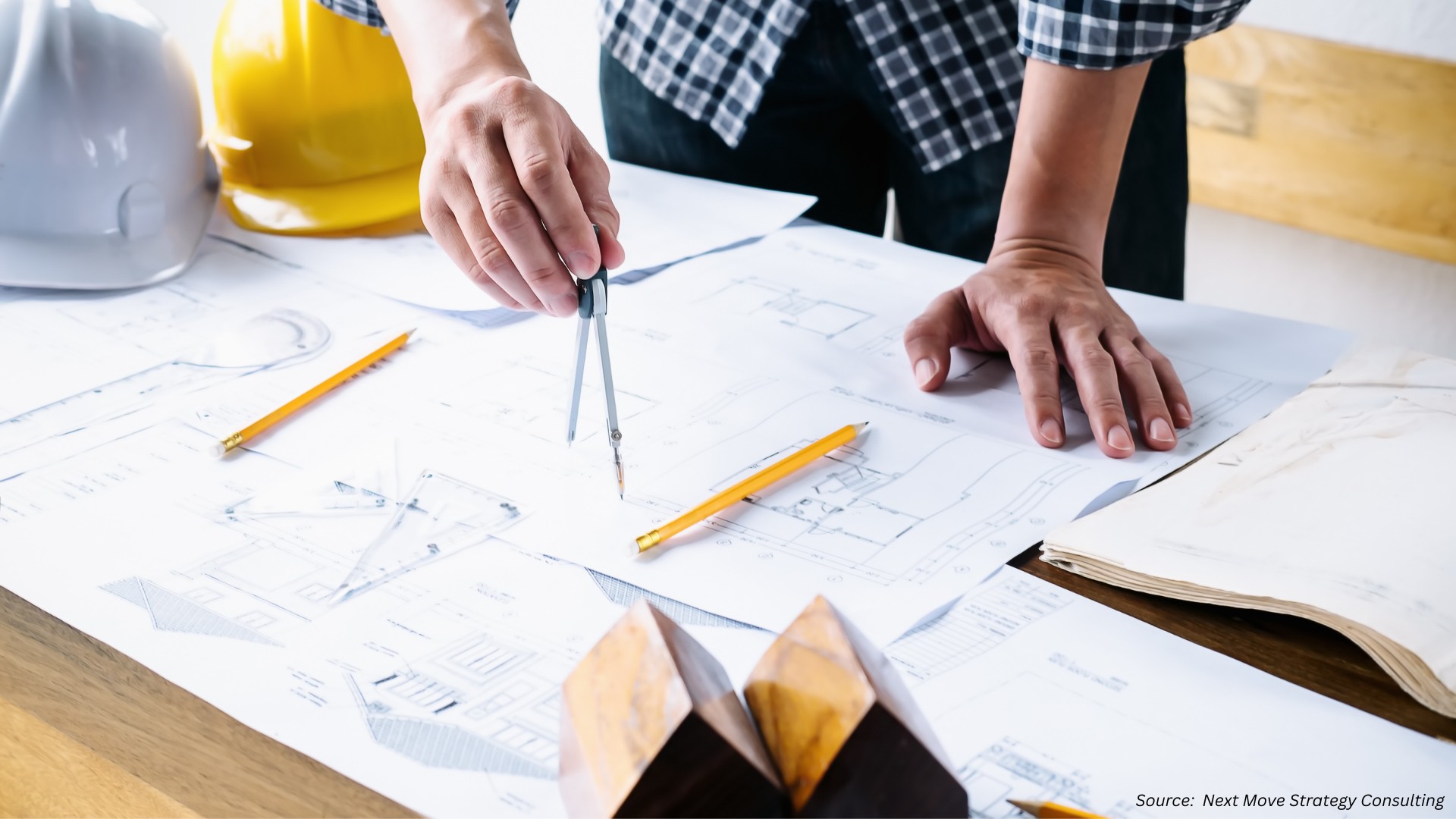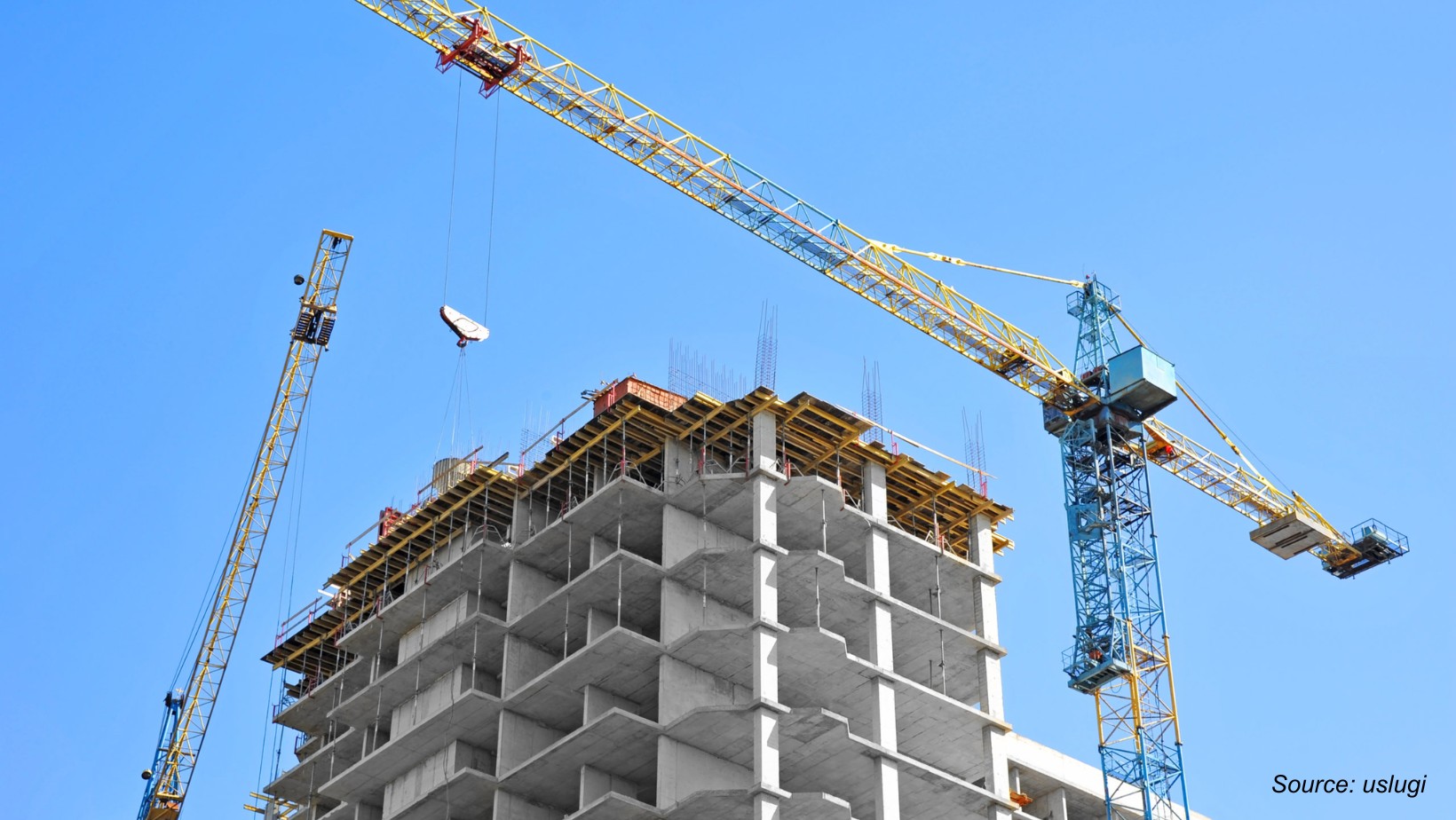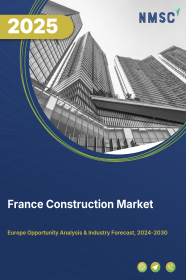
France Construction Market by Type, (Renovation, New Construction), by Sector, (Real Estate, Infrastructure, Industrial), by Construction Method, (Traditional Construction, Prefabricated/modular Construction, 3d Printed Construction, Green/sustainable Construction), by Type Of Contractor, (Large Contractor, Medium Contractor, Small Contractor) – Industry Trends and Forecast, 2025–2030
Industry: Construction & Manufacturing | Publish Date: 06-Sep-2025 | No of Pages: 85 | No. of Tables: 117 | No. of Figures: 62 | Format: PDF | Report Code : CM2199
France Construction Industry Overview
The France Construction Market size was valued at USD 295.83 billion in 2024, and is projected to grow to USD 325.83 billion by 2025. Additionally, the industry is expected to continue its growth trajectory, reaching USD 394.85 billion by 2030, with a CAGR of 3.9% from 2025 to 2030.
This industry is witnessing robust growth driven by rising environmental awareness, large-scale infrastructure initiatives, and increasing digitalization. Sustainable projects like the Provence Grand Large offshore wind farm highlight the country’s commitment to renewable energy, while major developments such as the Grand Paris Express and the Biscay Gulf Interconnector further boost construction demand.
However, complex regulatory frameworks and permitting procedures pose significant challenges, potentially delaying projects and escalating costs. Despite these obstacles, the sector is embracing digital transformation through the adoption of Building Information Modeling (BIM) and emerging technologies, unlocking new efficiencies and opportunities for market expansion.
Flagship Projects Power Market Expansion
France’s construction sector is experiencing strong growth, supported by a pipeline of high-profile, large-scale projects across infrastructure, commercial, and residential segments. Major urban redevelopment initiatives, modernization of transport hubs, and expansion of industrial zones are reshaping the built environment and creating sustained demand for construction services. From new eco-districts in metropolitan areas to strategic upgrades of airports, ports, and logistics facilities, these projects are reinforcing France’s position as a leading European hub for innovation, sustainability, and urban connectivity. Strong public–private collaboration, backed by national and regional development plans, continues to fuel this upward trajectory.
Sustainable Infrastructure Investments Drive Growth
Growing commitments to sustainable and future-ready infrastructure are driving construction activity across France. Strategic investments in renewable energy facilities, smart transportation networks, and resilient public infrastructure are aligning with the country’s green transition goals. Projects such as offshore wind farms, high-speed rail expansions, and urban mobility upgrades are not only improving connectivity but also embedding environmental performance into the core of construction planning. This shift towards eco-conscious development is boosting demand for advanced construction technologies, sustainable materials, and energy-efficient building practices, creating long-term market opportunities.
Regulatory Complexity Slows Project Delivery
Despite strong market potential, the French construction sector faces challenges from complex regulatory frameworks and administrative procedures. Developers often navigate multiple layers of national, regional, and municipal regulations, with varying interpretations and evolving compliance requirements. These processes can lead to delays in project approvals, increased administrative costs, and uncertainty in project timelines. While regulatory oversight ensures quality, safety, and sustainability standards, streamlining permitting and harmonizing procedures across jurisdictions remains essential to enhancing market efficiency and accelerating project delivery.
Digitalization and Bim Fuel Next-generation Construction
The growing adoption of digital construction tools is opening new avenues for efficiency and innovation in the French market. Building Information Modeling (BIM), digital twin technology, and AI-driven project management platforms are enabling seamless collaboration, precise planning, and real-time monitoring across project lifecycles. Public authorities and leading contractors are increasingly integrating these solutions to reduce design errors, optimize resource allocation, and improve sustainability outcomes. As France advances toward smart, connected, and carbon-neutral cities, digitalization will play a pivotal role in boosting productivity, attracting investment, and maintaining competitive advantage in the European construction landscape.
Competitive Landscape
The key players operating in the France construction industry include Vinci SA, Bouygues Construction, Eiffage SA, FAYAT Group, Spie Batignolles, NGE Group, Demathieu Bard Group, Léon Grosse, Implenia AG, Egis Group, Keller Group Plc, Larsen and Toubro Ltd, Groupe Legendre, Groupe GCC, Groupe BAM.
France Construction Market Key Segments
By Type
-
Renovation
-
New Construction
By Sector
-
Real Estate
-
Residential
-
Affordable
-
Luxury
-
-
Commercial
-
Retail Buildings
-
Office Buildings
-
Hospitality
-
Healthcare Facilities
-
Educational Institutes
-
Entertainment Ventures
-
-
-
Infrastructure
-
Transportation
-
Airport
-
Port
-
Rail
-
Road
-
-
Water and Wastewater
-
Energy
-
Telecommunication
-
-
Industrial
-
Manufacturing Plant
-
Warehouses
-
Power Plants
-
Oil Refineries
-
Chemical Plants
-
By Construction Method
-
Traditional Construction
-
Prefabricated/Modular Construction
-
3D-Printed Construction
-
Green/Sustainable Construction
By Type of Contractor
-
Large Contractor
-
Medium Contractor
-
Small Contractor
Key Players
-
Vinci SA
-
Bouygues Construction
-
Eiffage SA
-
FAYAT Group
-
Spie Batignolles
-
NGE Group
-
Demathieu Bard Group
-
Léon Grosse
-
Implenia AG
-
Egis Group
-
Keller Group Plc
-
Larsen and Toubro Ltd
-
Groupe Legendre
-
Groupe GCC
-
Groupe BAM
REPORT SCOPE AND SEGMENTATION:
|
Parameters |
Details |
|
Market Size in 2024 |
USD 295.83 Billion |
|
Revenue Forecast in 2030 |
USD 394.85 Billion |
|
Growth Rate |
CAGR of 3.9% from 2025 to 2030 |
|
Analysis Period |
2024–2030 |
|
Base Year Considered |
2024 |
|
Forecast Period |
2025–2030 |
|
Market Size Estimation |
Billion (USD) |
|
Growth Factors |
|
|
Companies Profiled |
15 |
|
Market Share |
Available for 10 companies |
|
Customization Scope |
Free customization (equivalent up to 80 working hours of analysts) after purchase. Addition or alteration to country, regional, and segment scope. |
|
Pricing and Purchase Options |
Avail customized purchase options to meet your exact research needs. |

















 Speak to Our Analyst
Speak to Our Analyst



